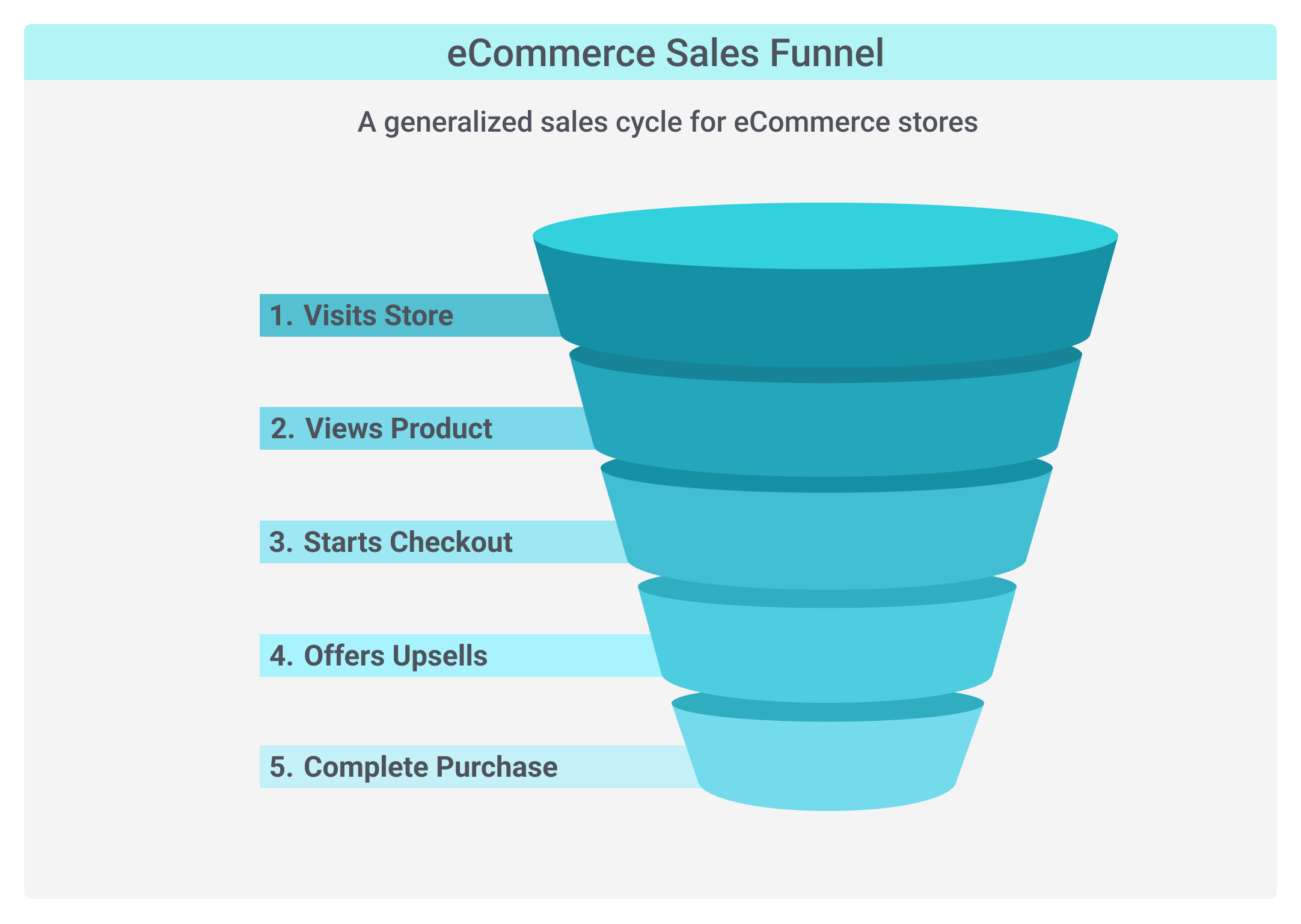What Is a Conversion Funnel?
A conversion funnel, also known as a sales funnel or marketing funnel, is a model that represents the customer journey from initial awareness of a product or service to the ultimate desired action, such as making a purchase or subscribing to a service.
The funnel metaphor is used to describe this process as it typically involves a large number of potential customers at the beginning (the top of the funnel) who gradually narrow down to a smaller group of individuals who complete the desired action (the bottom of the funnel).

The conversion funnel is generally divided into several stages, each representing a step in the customer's decision-making process. While the specific stages may vary depending on the business or industry, a typical conversion funnel includes the following stages:
- Awareness. At this stage, potential customers become aware of a product or service through marketing efforts, advertising, social media, or other channels. The goal is to generate interest and increase brand visibility.
- Interest. Potential customers demonstrate an interest in the product or service by engaging with the company's content, signing up for newsletters, or following the brand on social media. At this point, businesses aim to nurture these leads by providing relevant and valuable information.
- Consideration. Companies strive to provide persuasive content and targeted offers to help influence decision-making. Interested leads begin to evaluate the product or service by comparing it to competitors and researching features, benefits, and pricing.
- Conversion. The potential customer is ready to decide and take the desired action, such as purchasing, signing up for a subscription, or registering for a service. Businesses optimize their checkout process, provide clear calls to action, and offer incentives to increase the likelihood of conversion.
- Retention. After the initial conversion, companies work to maintain customer relationships by offering excellent customer service, additional products or services, and personalized experiences. This stage is essential for maximizing customer lifetime value and reducing churn.
Analyzing and optimizing the conversion funnel is crucial for businesses to identify areas of improvement, eliminate barriers to conversion, and create a seamless customer experience. By focusing on each stage of the funnel, businesses can enhance their marketing strategies, increase conversion rates, and ultimately, grow revenue.